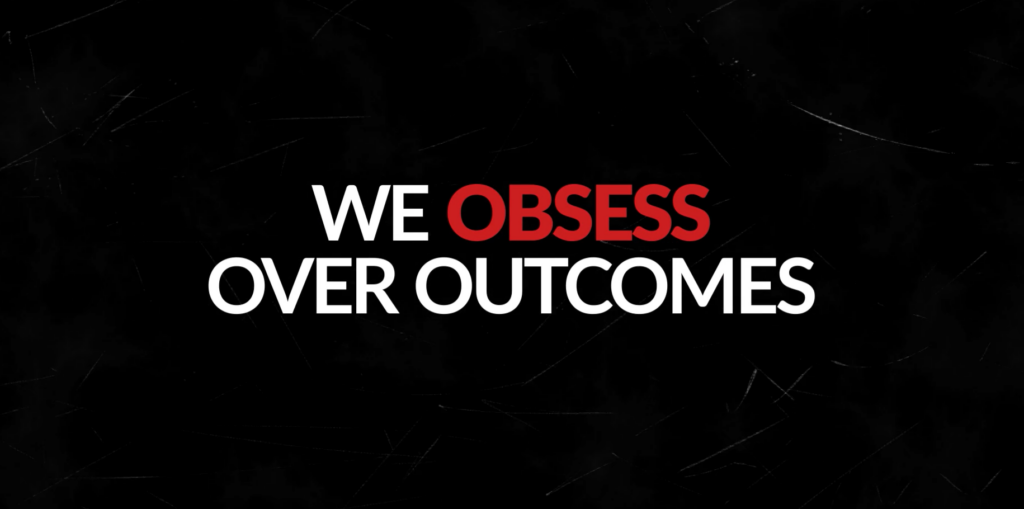It was 2002 when I landed what I considered to be my first real professional job. I was hired by a small advertising agency as a graphic designer, though I mainly got the offer because I also knew how to build websites. At the time, I had not created any principles and would still often assume that a problem is yours.
I was still young and fresh out of college, though I was a realistic and logical person with a desire to learn from my mistakes and create habits to help prevent them from happening again. Intentionality was important to me.
I already knew that I like to receive constructive feedback more than I like a pat on the back. To me, feedback is how I get better while kudos don’t change my behavior at all. It’s no wonder the retrospective, or after-action review, is my favorite part of a project or sprint!
In that first role, I was interacting directly with clients from start to finish on their print and digital projects. Real-time reactions and feedback on my work helped “toughen my skin.” Negative feedback, even if I disagreed with it, taught me how to manage expectations, mitigate risks, communicate clearly, and handle various personality types.
It was here that I formed my first true professional principle:
Assume the Problem is Yours, then Prove Otherwise
As a print designer, that could mean that 50,000 brochures were delivered with an error in them and the client needs it fixed. As a web developer, that could mean an update was made and two weeks later someone reports a regression in an area that should not have been affected.
There were times when my team and I would receive a call from a client and our knee-jerk reaction was, “that couldn’t have been caused by what we did.” There was pride in our work, we had faith in our processes, and we didn’t want to believe that the fault may be ours. We wanted to be perfect for our clients. We wanted to be infallible. But nobody is…
How the Principle Works
Over the years, this principle has helped me countless times. It’s similar to the quip that states an optimist can only be let down, while a pessimist can only be pleasantly surprised.
In an agency like Perficient, the client is seeking help. They want the agency to have competent experts. They want the team to be responsive and fix what is wrong.
In my experience, people are generally understanding. For me, just being open, honest, and human has always helped. When someone is inflexible and unforgiving, what I’ve seen is that it is almost always a breakdown in communication. Someone didn’t lay out expectations clearly, didn’t share important information, or was otherwise untruthful.
Properly Receiving an Issue
When a client brings up an unexpected issue, I’ve seen so many people let their pride interfere.
With this principle, you take the information, apologize, and empathize with them. Whether or not the issue is yours is irrelevant at this point. When it is first brought to you, all you need to do is collect information and make the client feel like you’ll take care of it. This is not the time for showing how perfect your team or processes are.
Responding After Investigation
When the root cause analysis (RCA) is complete, then you’ll know. If the team finds out that the issue was not theirs, no harm has been done. From the client’s perspective, you took ownership of it, you checked it out, and you gave them an answer. That’s all they wanted.
On the other hand, what if your RCA shows that you or your team made a mistake? The worst position here is if you had initially pushed back at the news. If you got upset, even mildly, and took it as an accusation…the client will remember and be frustrated that you were wrong after all. When this happens, your pride did nothing but slow down the process.
If the RCA shows that the mistake was yours, but you graciously accepted the information and you’re honestly reporting back with how you plan to resolve it…they’ll almost always be understanding and thankful that the issue is being handled.
Conclusion
This principle has served me well in life and work. I’ve seen myself and so many others trip over the desire to appear perfect. No one is perfect. If you adopt this principle for yourself, and assume the problem is yours, I know you’ll be happy that you did. Your clients will be happy that you did!
If you’re needing an agency partnership that can set ego aside and deal with reality, reach out to your Perficient account manager or use our contact form to begin a conversation.





Leave A Comment